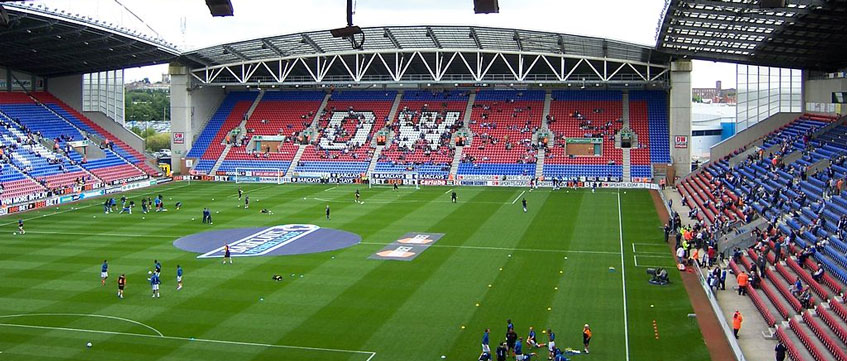The football season is just about to start, but Championship side Wigan Athletic has already suffered a major defeat – in its test case claim that the effects of relegation should be reflected in the calculation of business rates for stadiums.
The Valuation Tribunal for England rejected Wigan’s claim that relegation constitutes a “material change of circumstances” that should lead to an immediate reduction in business rates.
However, the VTE president said that, in the light of the vast riches on offer to Premier League clubs, “it may be that someone else needs to look again at the valuation approach to stadiums” – most likely, the government.
Unlike most other business premises, the rateable values of football stadiums are arrived at by reference to a number of factors, the principal one being the estimated cost of building a replacement stadium. However, a crucial element in this valuation is an adjustment that recognises the ability to pay, based on income.
This means that clubs in lower leagues generally face far lower bills than elite Premier League teams.
Wigan – which in recent years had tumbled from the Premier League all the way down to League One, but last season secured a return to the Championship – argued that the devastating financial impacts should have been taken into account immediately, not put off until the next revaluation.
Wigan was relegated from the Premier League, after a seven-year stay, in 2013. It was then relegated to League One two years later, at which point Colliers says it was paying more than six times the average business rates of its rivals in the division: £590,000 compared with an average of £88,000.
The club claimed it had suffered a “triple whammy” following its relegation from the Premier League – first, a significant fall in its broadcast revenue, sponsorship income and attendance levels.
Secondly, because it did not bounce back straightaway to the Premier League, its “parachute payments” ended. And thirdly, when the lifetime of the 2010 Rating List was extended by 2 years to 31 March 2017, it ceased to benefit from transitional relief.
However, the VTE president found that the “indisputable fact” is that the football club is not the only possible hypothetical tenant who would be willing to pay a rent for the right to occupy the stadium – as it currently shares the ground with the successful Wigan rugby league club.
He said: “The parties have disregarded the presence of the rugby league club but in my opinion, to do so offends the principle of reality.”
The president said that the world had “moved on” since 1960 and the leading case in the area, concerning Plymouth Argyle.
He added: “The Premier League was not in existence then and football was not the multi-million pound business that it is today. In addition, football clubs are not always the only possible tenant, as is the case with Wigan, so the rateable value assessment should not be solely driven by what the football club is prepared to pay. Indeed, in the summer, grounds can be utilised for a whole host of other activities including pop concerts or even other sporting events.
“It may be that someone needs to look again at the valuation approach to stadiums which are occupied by football clubs; however, for now the current process is the one under consideration in this case.
“Ultimately, I have come to the conclusion that relegation in these appeals is not a material change of circumstances in accordance with the legislation and case law and therefore the appeals are dismissed.”
The outcome of the case was anxiously awaited by other clubs in a similar position. When Sunderland’s Stadium of Light was valued for business rates in early 2017, the club was in the Premier League and its rateable value, Colliers says, was increased by 86% from £1.9m to £3.53m, giving the club an annual rates bill of £1.38m in 2017/8, rising to £1.74m for this coming year.
Yet during this time Sunderland has been relegated twice.
In contrast, Wolverhampton Wanderers’ stadium was valued when the club was in the Championship, giving it a rateable value of £685,000, and thus an annual rates bill of £328,000 in 2017/8 and £338,000 this year.
The club has now been promoted and will play next season in the Premier League, where it will receive at least £100m in income from TV rights, etc.
To send feedback, e-mail jess.harrold@egi.co.uk or tweet @jessharrold or @estatesgazette








